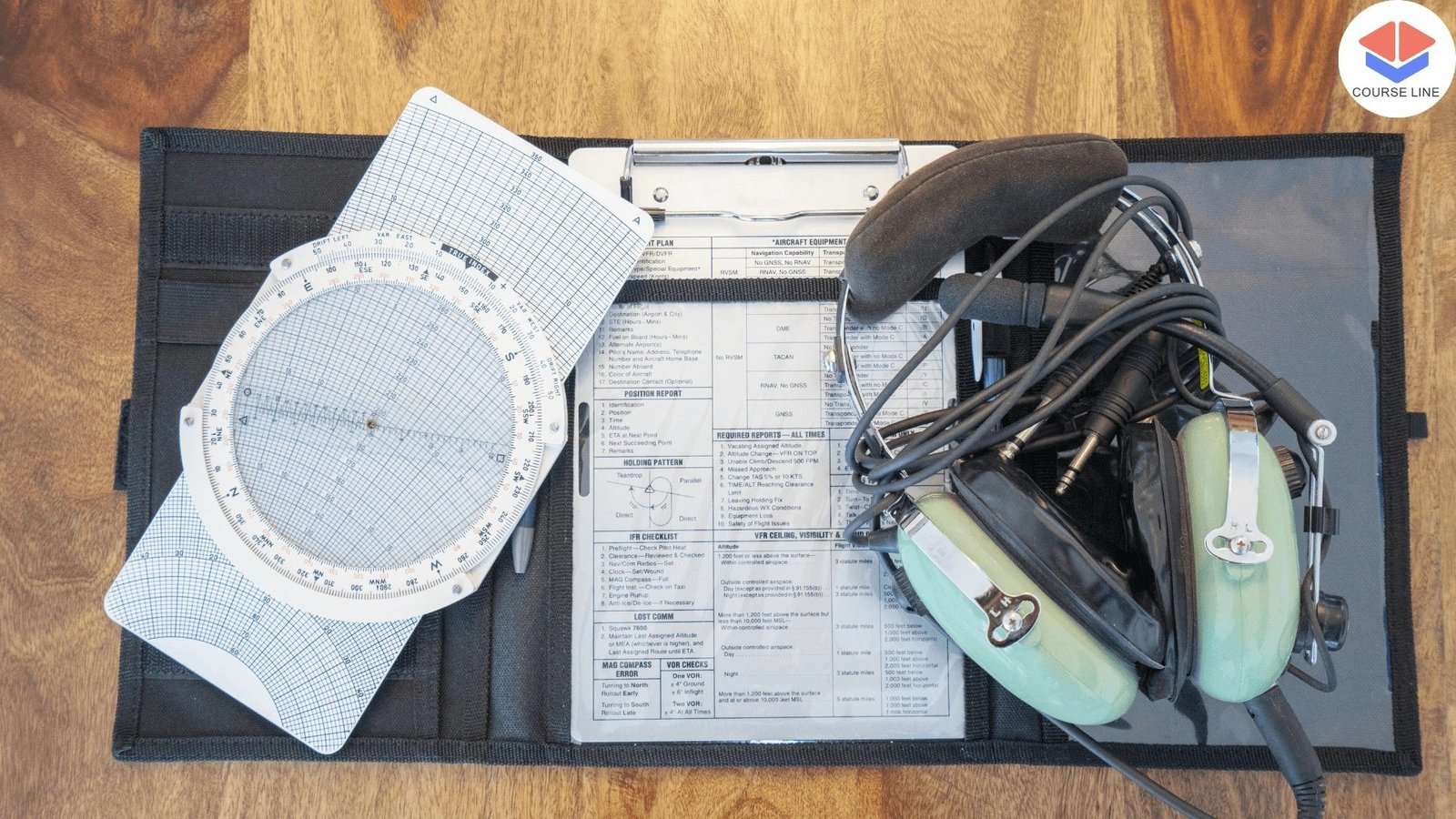Course Features
Price
Study Method
Online | Self-paced
Course Format
Reading Material - PDF, article
Duration
9 hours, 25 minutes
Qualification
No formal qualification
Certificate
At completion
Additional info
Coming soon
- Share
Overview
The Aerospace Engineering Level 8 Advanced Diploma delivers an intensive and future-focused exploration of the entire aerospace field. From the fundamentals of aerodynamics and fluid mechanics to advanced applications in propulsion, avionics, structural design, and orbital mechanics, this course equips learners with a comprehensive skill set aligned with the evolving demands of global aerospace industries.
Throughout the programme, students will investigate the physics behind flight, understand how aircraft and spacecraft systems are integrated, and explore aerospace materials such as composites and advanced alloys. They will gain insight into propulsion mechanisms, from jet engines to rocket thrusters, and learn how computational tools like CFD and CAD influence modern design and safety practices.
Special attention is given to avionics, navigation systems, and the control technologies that power autonomous and AI-enabled aerospace systems. Learners will also dive into spacecraft systems, satellite communication, and mission planning, developing expertise applicable to both military and commercial spaceflight operations. The course explores manufacturing trends, quality assurance, and the role of additive manufacturing and sustainability in shaping next-generation aerospace practices.
In the final phase, learners undertake a capstone project to apply research, data analysis, and simulation skills while building a professional portfolio. This is complemented by career guidance tailored to aerospace roles in design, R&D, operations, and engineering management.
Who is this course for?
The Aerospace Engineering Level 8 Advanced Diploma delivers an intensive and future-focused exploration of the entire aerospace field. From the fundamentals of aerodynamics and fluid mechanics to advanced applications in propulsion, avionics, structural design, and orbital mechanics, this course equips learners with a comprehensive skill set aligned with the evolving demands of global aerospace industries.
Throughout the programme, students will investigate the physics behind flight, understand how aircraft and spacecraft systems are integrated, and explore aerospace materials such as composites and advanced alloys. They will gain insight into propulsion mechanisms, from jet engines to rocket thrusters, and learn how computational tools like CFD and CAD influence modern design and safety practices.
Special attention is given to avionics, navigation systems, and the control technologies that power autonomous and AI-enabled aerospace systems. Learners will also dive into spacecraft systems, satellite communication, and mission planning, developing expertise applicable to both military and commercial spaceflight operations. The course explores manufacturing trends, quality assurance, and the role of additive manufacturing and sustainability in shaping next-generation aerospace practices.
In the final phase, learners undertake a capstone project to apply research, data analysis, and simulation skills while building a professional portfolio. This is complemented by career guidance tailored to aerospace roles in design, R&D, operations, and engineering management.
Requirements
The Aerospace Engineering Level 8 Advanced Diploma delivers an intensive and future-focused exploration of the entire aerospace field. From the fundamentals of aerodynamics and fluid mechanics to advanced applications in propulsion, avionics, structural design, and orbital mechanics, this course equips learners with a comprehensive skill set aligned with the evolving demands of global aerospace industries.
Throughout the programme, students will investigate the physics behind flight, understand how aircraft and spacecraft systems are integrated, and explore aerospace materials such as composites and advanced alloys. They will gain insight into propulsion mechanisms, from jet engines to rocket thrusters, and learn how computational tools like CFD and CAD influence modern design and safety practices.
Special attention is given to avionics, navigation systems, and the control technologies that power autonomous and AI-enabled aerospace systems. Learners will also dive into spacecraft systems, satellite communication, and mission planning, developing expertise applicable to both military and commercial spaceflight operations. The course explores manufacturing trends, quality assurance, and the role of additive manufacturing and sustainability in shaping next-generation aerospace practices.
In the final phase, learners undertake a capstone project to apply research, data analysis, and simulation skills while building a professional portfolio. This is complemented by career guidance tailored to aerospace roles in design, R&D, operations, and engineering management.
Career path
The Aerospace Engineering Level 8 Advanced Diploma delivers an intensive and future-focused exploration of the entire aerospace field. From the fundamentals of aerodynamics and fluid mechanics to advanced applications in propulsion, avionics, structural design, and orbital mechanics, this course equips learners with a comprehensive skill set aligned with the evolving demands of global aerospace industries.
Throughout the programme, students will investigate the physics behind flight, understand how aircraft and spacecraft systems are integrated, and explore aerospace materials such as composites and advanced alloys. They will gain insight into propulsion mechanisms, from jet engines to rocket thrusters, and learn how computational tools like CFD and CAD influence modern design and safety practices.
Special attention is given to avionics, navigation systems, and the control technologies that power autonomous and AI-enabled aerospace systems. Learners will also dive into spacecraft systems, satellite communication, and mission planning, developing expertise applicable to both military and commercial spaceflight operations. The course explores manufacturing trends, quality assurance, and the role of additive manufacturing and sustainability in shaping next-generation aerospace practices.
In the final phase, learners undertake a capstone project to apply research, data analysis, and simulation skills while building a professional portfolio. This is complemented by career guidance tailored to aerospace roles in design, R&D, operations, and engineering management.
-
- Introduction to Aerospace Engineering 00:10:00
- Historical Evolution of Aeronautics and Astronautics 00:10:00
- Aerospace Sectors: Military, Commercial, and Space 00:10:00
- Overview of Key Systems in Aircraft and Spacecraft 00:10:00
- Current Trends and Challenges in Aerospace 00:10:00
-
- Principles of Fluid Dynamics in Aerospace 00:10:00
- Lift, Drag, and Thrust: Forces in Flight 00:10:00
- Subsonic, Transonic, and Supersonic Aerodynamics 00:10:00
- Stability and Control of Aircraft 00:10:00
- Computational Fluid Dynamics (CFD) Applications 00:10:00
- Materials Used in Aircraft and Spacecraft 00:10:00
- Stress, Strain, and Fatigue in Aerospace Structures 00:10:00
- Composites and Advanced Materials 00:10:00
- Structural Design Principles and Testing 00:10:00
- Damage Tolerance and Material Failure 00:10:00
- Introduction to Avionics and Instrumentation 00:10:00
- Navigation and Communication Systems 00:10:00
- Autopilot and Fly-by-Wire Systems 00:10:00
- Sensors and Data Acquisition 00:10:00
- Emerging Trends in Avionics (AI, IoT) 00:10:00
- Design Process and Requirements Analysis 00:10:00
- Conceptual and Preliminary Design 00:10:00
- Integration of Subsystems 00:10:00
- CAD and Simulation Tools in Design 00:10:00
- Safety and Certification Standards 00:10:00
- The Role of Research in Aerospace Development 00:10:00
- Autonomous Systems and Unmanned Aerial Vehicles (UAVs) 00:10:00
- Hypersonic Flight and Space Tourism 00:10:00
- AI, Machine Learning, and Big Data in Aerospace 00:10:00
- Future of Aerospace Engineering 00:10:00
- Exam of Aerospace Engineering Level 8 Advanced Diploma 00:50:00

No Reviews found for this course.
Is this certificate recognized?
Yes, our premium certificate and transcript are widely recognized and accepted by embassies worldwide, particularly by the UK embassy. This adds credibility to your qualification and enhances its value for professional and academic purposes.
I am a beginner. Is this course suitable for me?
Yes, this course is designed for learners of all levels, including beginners. The content is structured to provide step-by-step guidance, ensuring that even those with no prior experience can follow along and gain valuable knowledge.
I am a professional. Is this course suitable for me?
Yes, professionals will also benefit from this course. It covers advanced concepts, practical applications, and industry insights that can help enhance existing skills and knowledge. Whether you are looking to refine your expertise or expand your qualifications, this course provides valuable learning.
Does this course have an expiry date?
No, you have lifetime access to the course. Once enrolled, you can revisit the materials at any time as long as the course remains available. Additionally, we regularly update our content to ensure it stays relevant and up to date.
How do I claim my free certificate?
I trust you’re in good health. Your free certificate can be located in the Achievement section. The option to purchase a CPD certificate is available but entirely optional, and you may choose to skip it. Please be aware that it’s crucial to click the “Complete” button to ensure the certificate is generated, as this process is entirely automated.
Does this course have assessments and assignments?
Yes, the course includes both assessments and assignments. Your final marks will be determined by a combination of 20% from assignments and 80% from assessments. These evaluations are designed to test your understanding and ensure you have grasped the key concepts effectively.
Is this course accredited?
We are a recognized course provider with CPD, UKRLP, and AOHT membership. The logos of these accreditation bodies will be featured on your premium certificate and transcript, ensuring credibility and professional recognition.
Will I receive a certificate upon completion?
Yes, you will receive a free digital certificate automatically once you complete the course. If you would like a premium CPD-accredited certificate, either in digital or physical format, you can upgrade for a small fee.
Course Features
Price
Study Method
Online | Self-paced
Course Format
Reading Material - PDF, article
Duration
9 hours, 25 minutes
Qualification
No formal qualification
Certificate
At completion
Additional info
Coming soon
- Share
City & Guilds: Hairdressing & Barbering Basics
Course Line237£490.00Original price was: £490.00.£14.99Current price is: £14.99.Mixology Level 3 Advanced Diploma
Course Line274£490.00Original price was: £490.00.£14.99Current price is: £14.99.Cake Decorating Essentials
Course Line238£490.00Original price was: £490.00.£14.99Current price is: £14.99.





